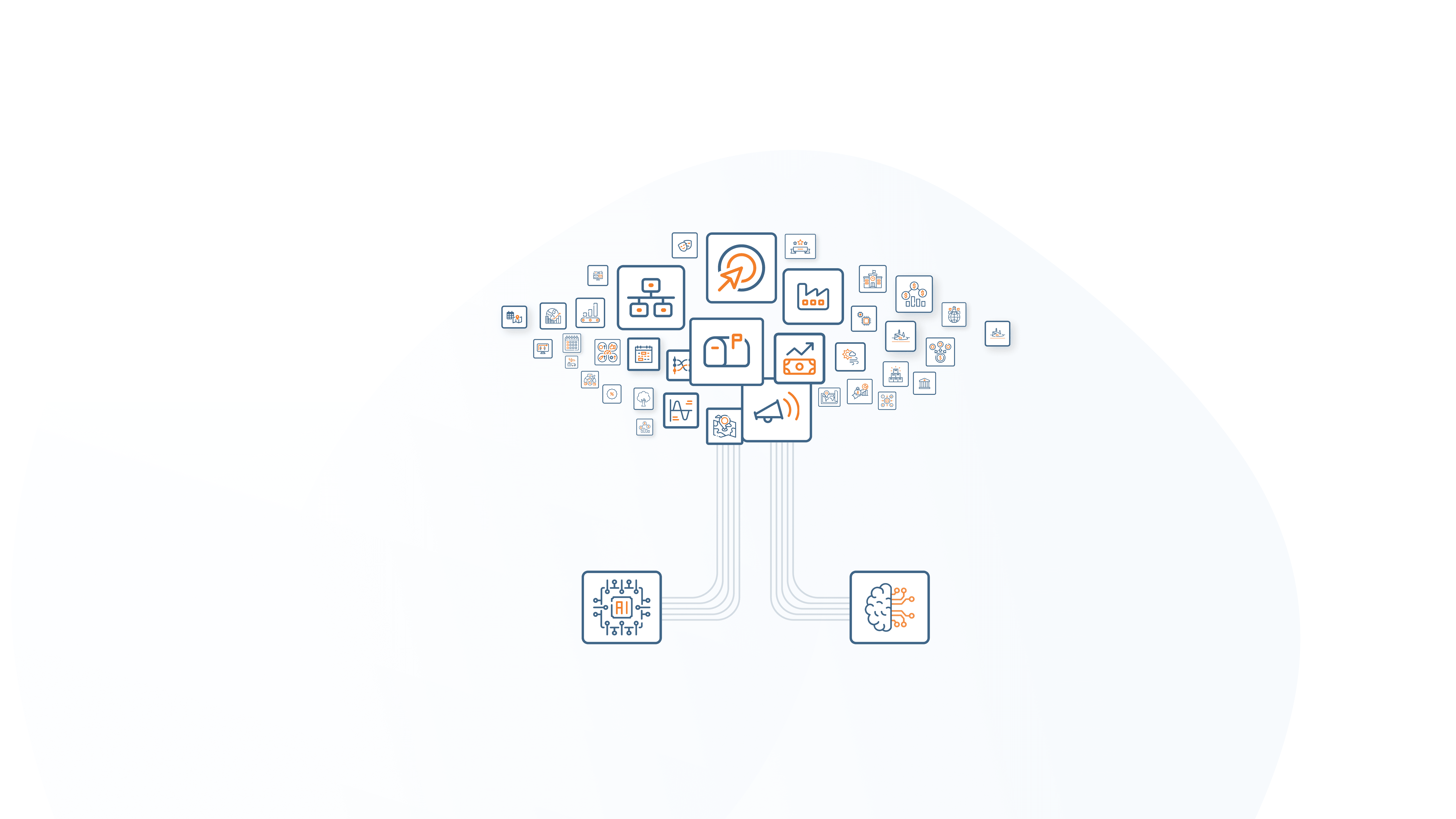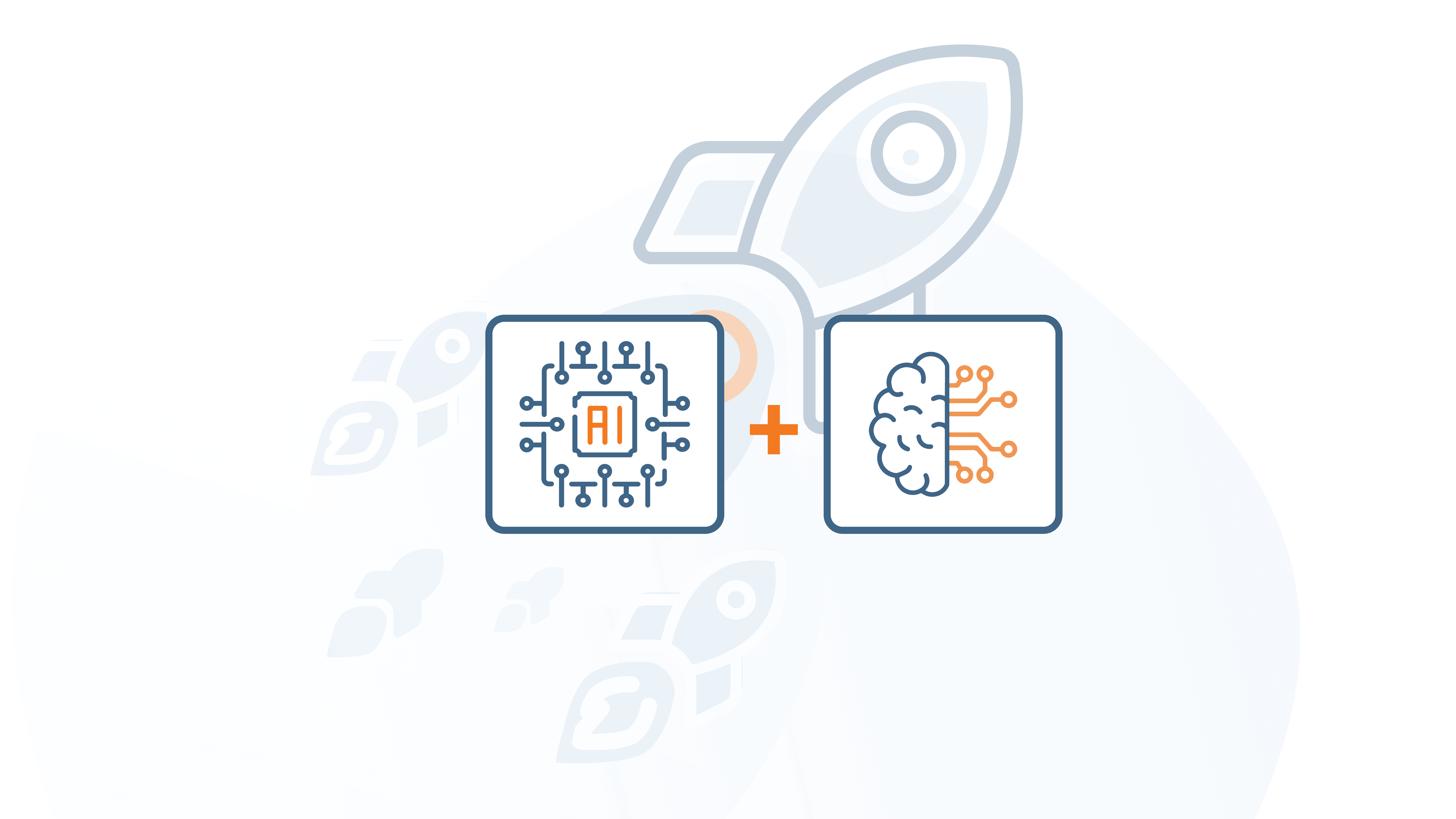

Stefán Baxter
CEO & Founder
Sep 4, 2024
Decoding the Future
How Machine Learning and Deep Learning are Reshaping Business
Introduction
In the ever-evolving business landscape, Machine Learning (ML) and Deep Learning (DL) are transformative technologies that rewrite the game's rules. This article explores how these technologies are revolutionizing various aspects of business, from predictive analytics to marketing automation.
The Data Deluge and the Need for ML/DL
Businesses are awash in data, but making sense of this data is a monumental task. This is where ML and DL come into play, offering sophisticated algorithms that can learn from data and make intelligent decisions.

How ML/DL Are Changing the Business Landscape
The Retail Revolution
A retail giant uses ML algorithms to analyze past sales data and predict future demand. This enables the company to optimize stock levels, reducing both overstock and stockouts.
The Email Sorter
A multinational corporation employs ML to automatically classify incoming emails into different categories such as 'urgent,' 'customer feedback,' and 'vendor communication,' streamlining workflow and improving efficiency.
The Financial Watchdog
A credit card company uses deep learning algorithms to analyze transaction patterns and flag suspicious activities, reducing the incidence of fraud and enhancing customer trust.
The Factory Sentinel
In an automotive manufacturing plant, deep learning algorithms monitor machinery for signs of wear and tear, scheduling maintenance activities before a breakdown occurs, thereby saving both time and money.
The Network Guardian
A cybersecurity firm employs ML to monitor network traffic in real-time. The system can detect unusual patterns and potential security breaches, enabling immediate action to prevent data loss.
The Marketing Maestro
An e-commerce platform uses ML to segment its customer base based on buying behaviour and preferences. Personalized marketing campaigns are then deployed to target each segment, increasing conversion rates.
The Supply Chain Optimizer
A logistics company employs deep learning to forecast demand and optimize inventory levels across multiple warehouses, ensuring that products are always available where and when needed.
The Revenue Maximizer
An airline uses ML algorithms to analyze booking trends, seasonal demand, and competitor pricing to dynamically adjust ticket prices, maximizing revenue without alienating customers.
The Campaign Conductor
A SaaS company uses ML to analyze customer engagement with its email campaigns. The system automatically adjusts the timing, content, and recipients of future emails to maximize engagement and conversions.

Conclusion
Machine Learning and Deep Learning are more than just buzzwords; they are technologies that have the potential to redefine how businesses operate and compete. By leveraging these technologies, companies can gain a significant edge in a data-driven world.
Introduction
In the ever-evolving business landscape, Machine Learning (ML) and Deep Learning (DL) are transformative technologies that rewrite the game's rules. This article explores how these technologies are revolutionizing various aspects of business, from predictive analytics to marketing automation.
The Data Deluge and the Need for ML/DL
Businesses are awash in data, but making sense of this data is a monumental task. This is where ML and DL come into play, offering sophisticated algorithms that can learn from data and make intelligent decisions.

How ML/DL Are Changing the Business Landscape
The Retail Revolution
A retail giant uses ML algorithms to analyze past sales data and predict future demand. This enables the company to optimize stock levels, reducing both overstock and stockouts.
The Email Sorter
A multinational corporation employs ML to automatically classify incoming emails into different categories such as 'urgent,' 'customer feedback,' and 'vendor communication,' streamlining workflow and improving efficiency.
The Financial Watchdog
A credit card company uses deep learning algorithms to analyze transaction patterns and flag suspicious activities, reducing the incidence of fraud and enhancing customer trust.
The Factory Sentinel
In an automotive manufacturing plant, deep learning algorithms monitor machinery for signs of wear and tear, scheduling maintenance activities before a breakdown occurs, thereby saving both time and money.
The Network Guardian
A cybersecurity firm employs ML to monitor network traffic in real-time. The system can detect unusual patterns and potential security breaches, enabling immediate action to prevent data loss.
The Marketing Maestro
An e-commerce platform uses ML to segment its customer base based on buying behaviour and preferences. Personalized marketing campaigns are then deployed to target each segment, increasing conversion rates.
The Supply Chain Optimizer
A logistics company employs deep learning to forecast demand and optimize inventory levels across multiple warehouses, ensuring that products are always available where and when needed.
The Revenue Maximizer
An airline uses ML algorithms to analyze booking trends, seasonal demand, and competitor pricing to dynamically adjust ticket prices, maximizing revenue without alienating customers.
The Campaign Conductor
A SaaS company uses ML to analyze customer engagement with its email campaigns. The system automatically adjusts the timing, content, and recipients of future emails to maximize engagement and conversions.

Conclusion
Machine Learning and Deep Learning are more than just buzzwords; they are technologies that have the potential to redefine how businesses operate and compete. By leveraging these technologies, companies can gain a significant edge in a data-driven world.
Introduction
In the ever-evolving business landscape, Machine Learning (ML) and Deep Learning (DL) are transformative technologies that rewrite the game's rules. This article explores how these technologies are revolutionizing various aspects of business, from predictive analytics to marketing automation.
The Data Deluge and the Need for ML/DL
Businesses are awash in data, but making sense of this data is a monumental task. This is where ML and DL come into play, offering sophisticated algorithms that can learn from data and make intelligent decisions.

How ML/DL Are Changing the Business Landscape
The Retail Revolution
A retail giant uses ML algorithms to analyze past sales data and predict future demand. This enables the company to optimize stock levels, reducing both overstock and stockouts.
The Email Sorter
A multinational corporation employs ML to automatically classify incoming emails into different categories such as 'urgent,' 'customer feedback,' and 'vendor communication,' streamlining workflow and improving efficiency.
The Financial Watchdog
A credit card company uses deep learning algorithms to analyze transaction patterns and flag suspicious activities, reducing the incidence of fraud and enhancing customer trust.
The Factory Sentinel
In an automotive manufacturing plant, deep learning algorithms monitor machinery for signs of wear and tear, scheduling maintenance activities before a breakdown occurs, thereby saving both time and money.
The Network Guardian
A cybersecurity firm employs ML to monitor network traffic in real-time. The system can detect unusual patterns and potential security breaches, enabling immediate action to prevent data loss.
The Marketing Maestro
An e-commerce platform uses ML to segment its customer base based on buying behaviour and preferences. Personalized marketing campaigns are then deployed to target each segment, increasing conversion rates.
The Supply Chain Optimizer
A logistics company employs deep learning to forecast demand and optimize inventory levels across multiple warehouses, ensuring that products are always available where and when needed.
The Revenue Maximizer
An airline uses ML algorithms to analyze booking trends, seasonal demand, and competitor pricing to dynamically adjust ticket prices, maximizing revenue without alienating customers.
The Campaign Conductor
A SaaS company uses ML to analyze customer engagement with its email campaigns. The system automatically adjusts the timing, content, and recipients of future emails to maximize engagement and conversions.

Conclusion
Machine Learning and Deep Learning are more than just buzzwords; they are technologies that have the potential to redefine how businesses operate and compete. By leveraging these technologies, companies can gain a significant edge in a data-driven world.
Introduction
In the ever-evolving business landscape, Machine Learning (ML) and Deep Learning (DL) are transformative technologies that rewrite the game's rules. This article explores how these technologies are revolutionizing various aspects of business, from predictive analytics to marketing automation.
The Data Deluge and the Need for ML/DL
Businesses are awash in data, but making sense of this data is a monumental task. This is where ML and DL come into play, offering sophisticated algorithms that can learn from data and make intelligent decisions.

How ML/DL Are Changing the Business Landscape
The Retail Revolution
A retail giant uses ML algorithms to analyze past sales data and predict future demand. This enables the company to optimize stock levels, reducing both overstock and stockouts.
The Email Sorter
A multinational corporation employs ML to automatically classify incoming emails into different categories such as 'urgent,' 'customer feedback,' and 'vendor communication,' streamlining workflow and improving efficiency.
The Financial Watchdog
A credit card company uses deep learning algorithms to analyze transaction patterns and flag suspicious activities, reducing the incidence of fraud and enhancing customer trust.
The Factory Sentinel
In an automotive manufacturing plant, deep learning algorithms monitor machinery for signs of wear and tear, scheduling maintenance activities before a breakdown occurs, thereby saving both time and money.
The Network Guardian
A cybersecurity firm employs ML to monitor network traffic in real-time. The system can detect unusual patterns and potential security breaches, enabling immediate action to prevent data loss.
The Marketing Maestro
An e-commerce platform uses ML to segment its customer base based on buying behaviour and preferences. Personalized marketing campaigns are then deployed to target each segment, increasing conversion rates.
The Supply Chain Optimizer
A logistics company employs deep learning to forecast demand and optimize inventory levels across multiple warehouses, ensuring that products are always available where and when needed.
The Revenue Maximizer
An airline uses ML algorithms to analyze booking trends, seasonal demand, and competitor pricing to dynamically adjust ticket prices, maximizing revenue without alienating customers.
The Campaign Conductor
A SaaS company uses ML to analyze customer engagement with its email campaigns. The system automatically adjusts the timing, content, and recipients of future emails to maximize engagement and conversions.

Conclusion
Machine Learning and Deep Learning are more than just buzzwords; they are technologies that have the potential to redefine how businesses operate and compete. By leveraging these technologies, companies can gain a significant edge in a data-driven world.


